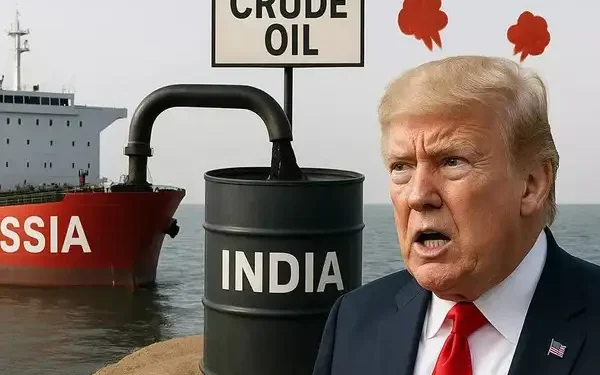Lagatar24 Desk
New Delhi: With the US imposing an additional 25% tariff on Indian goods effective today, the spotlight has shifted to India’s crude oil trade with Russia. Refinery executives indicate that despite mounting pressure from Washington, India is unlikely to halt Russian oil imports, stressing that the government’s clear stance is “country first, commerce later.”
Government’s Clear Message
Refinery executives told Economic Times that there are no official instructions to stop procurement of Russian crude. September cargo volumes have dipped compared to yearly averages, but executives say this is due to shrinking discounts on Russian crude rather than external pressure. Discounts have narrowed to $1.5–$1.7 per barrel compared to $2.5–$3 last year. They expect October volumes to rise again as discounts expand. Officials underline that Prime Minister Narendra Modi, External Affairs Minister S. Jaishankar, and Commerce Minister Piyush Goyal prefer supporting Indian exporters through challenges rather than ceding to US demands.
India’s Position in Trade Talks
Industry insiders argue that yielding on crude imports could invite additional demands from the US. They emphasise that transitioning away from Russian oil is technically feasible but not desirable given global supply balances. “Supply lines will only have to be readjusted. Russian oil is not sanctioned and will remain on the global market. Buyers of discounted Russian barrels will simply replace their original supplies,” one executive explained.
Resilient Energy Strategy
While Indian refiners such as Indian Oil Corporation and Reliance Industries have slowed down Russian purchases temporarily, they are expected to continue imports at steady levels. Officials stress that a consistent supply of affordable crude is critical for India’s refining capacity and overall energy security.
Diplomatic Undertone
Jaishankar recently reiterated that India will not bow to unilateral sanctions, remarking, “If you don’t like it, don’t buy it.”This reflects India’s effort to balance strategic autonomy with economic pragmatism in its energy trade, even as tariff-related negotiations with the US intensify.







